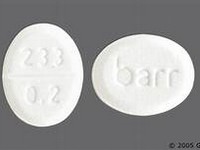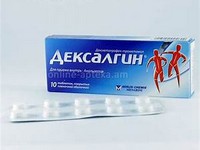Paroxetine

CLINICAL USE
Antidepressant:Panic disorders Obsessive compulsive disorder Social anxiety Post traumatic stress disorder
DOSE IN NORMAL RENAL FUNCTION
10–60 mg daily depending on indication
PHARMACOKINETICS
Molecular weight :329.4 %Protein binding :95 %Excreted unchanged in urine : <2 Volume of distribution (L/kg) :13half-life – normal/ESRD (hrs) :24/30 DOSE IN RENAL IMPAIRMENT
GFR (mL/MIN)
30–50 Dose as in normal renal function10–30 20 mg daily and titrate slowly <10 : 20 mg daily and titrate slowly DOSE IN PATIENTS UNDERGOING RENAL REPLACEMENT THERAPIES
CAPD :Unlikely to be dialysed. Dose as in GFR <10 mL/min HD :Not dialysed. Dose as in GFR <10 mL/min HDF/high flux :Unknown dialysability. Dose as in GFR <10 mL/minCAV/VVHD :Unknown dialysability. Dose as for GFR=10–30 mL/min IMPORTANT DRUG INTERACTIONS
Potentially hazardous interactions with other drugsAnalgesics: increased risk of bleeding with aspirin and NSAIDs; increased risk of CNS toxicity with tramadolAnti-arrhythmics: possibly inhibits propafenone metabolism (increased risk of toxicity)Anticoagulants: effect of coumarins possibly enhancedAntidepressants: avoid concomitant use with MAOIs and moclobemide (increased risk of toxicity); avoid concomitant use with St John’s wort; possibly enhanced serotonergic effects with duloxetine; can increase tricyclics antidepressant concentration; increased agitation and nausea with tryptophanAnti-epileptics: antagonism (lowered convulsive threshold); concentration reduced by carbamazepine, phenytoin and primidoneAntimalarials: avoid concomitant use with artemether/lumefantrineAntipsychotics: concentration of clozapine, sertindole and possibly risperidone increased; metabolism of perphenazine inhibited, reduce dose of perphenazine; possibly inhibit aripiprazole metabolism, reduce aripiprazole doseAntivirals: concentration increased by ritonavirDopaminergics: use entacapone with caution; increased risk of hypertension and CNS excitation with selegiline – avoid concomitant use; increased risk of CNS toxicity with rasagiline – avoid concomitant use5HT 1 agonist: risk of CNS toxicity increased by sumatriptan – avoid concomitant use; possibly increased risk of serotonergic effects with frovatriptan Lithium: increased risk of CNS effects – monitor levelsSibutramine: increased risk of CNS toxicity – avoid concomitant use ADMINISTRATION
Reconstition
– Route
Oral Rate of Administration
–Comments
–
See how to identify renal failure stages according to GFR calculation
See how to diagnose irreversible renal disease
Home









